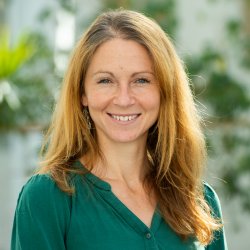PhD studentship in single cell mass spectrometry: using accelerators and water cluster ion beams to fight cancer and infectious diseases
The aim of this exciting PhD project is to develop new mass spectrometry methodologies to image biomarkers within cells and tissues. The project will use a new, £3M system for multimodal ion beam imaging. The system combines water cluster ion beams with high-energy ion beams from an accelerator, to generate X-rays and mass spectra. This will help us to locate metals, metabolites and proteins, and help to treat infectious diseases and cancer. We are looking for a motivated chemist, physicist or biologist to work with our multi-disciplinary team.
Start date
1 July 2025Duration
3.5 yearsApplication deadline
Funding source
University of SurreyFunding information
UKRI standard stipend and home fees with a generous funding allocation for research training support.
About
The aim of this exciting PhD project is to develop new mass spectrometry methodologies to image biomarkers within cells and tissues. The project will use a new £3M system for multimodal ion beam imaging. The system combines water cluster ion beams with high energy ion beams from an accelerator, to generate X-rays and mass spectra. This will help us to locate metals, metabolites and proteins, and help to treat infectious diseases and cancer.
The UK National Ion Beam Centre is an exciting, multi-disciplinary facility with an outstanding international research reputation. We employ biologists, chemists, engineers and physicists and have a strong research culture and a vibrant PhD cohort. We provide tools that are used all over the world to analyse many types of samples, including cancer cells, tissues, solar cells, meteorites and batteries. We have recently worked with IonOptika to build a new, internationally unique system for imaging cells and tissues using ion beams, which will be the focus of this PhD project. The system combines mass spectrometry and X-ray spectrometry and will help us and our collaborators to optimise drug delivery and wound healing and improve the treatment of diseases like diabetes, tuberculosis and cancer. The aim of the PhD will be to optimise the sensitivity and spatial resolution of the techniques and then work with our collaborators in biology to showcase their capability.
We will provide training in mass spectrometry, ion beam analysis and cell culture and are looking for a motivated and enthusiastic chemist, physicist or biologist with excellent interpersonal skills and a strong academic track record to join our collaborative and supportive team.
Eligibility criteria
Open to candidates who pay UK/home rate fees. See UKCISA for further information.
You will need to meet the minimum entry requirements for our Chemistry PhD programme.
We are looking for a candidate with an excellent academic track record and very strong interpersonal skills. Evidence of multi-disciplinary research or a placement would be preferred but is not essential.
How to apply
Applications should be submitted via the Chemistry PhD programme page. In place of a research proposal you should upload a document stating the title of the project that you wish to apply for and the name of the relevant supervisor.
Later start dates may be possible – please contact m.bailey@surrey.ac.uk once deadline passes
Studentship FAQs
Read our studentship FAQs to find out more about applying and funding.
Application deadline
Contact details

Studentships at Surrey
We have a wide range of studentship opportunities available.


